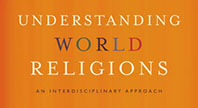
UWR |
Student |
Religion |
Open Educational Resources for the study of World Religions
| About | Articles | Audio | Books | Courses | Internet | Journals | Methods | Statistics | UWR study aids | Videos | World Religions |
|---|---|---|---|---|---|---|---|---|---|---|---|
Research Ethics and Academic Fraud |
|||||||||||
| Anthropology | Academic Fraud | History | Logic and Rhetoric | Media Sources | Research Methods | Sociology | |||||
Over the past twenty-five year resaerch ethics have become an increasingly important aspect of any research concerning human subjects. While much of this is good there are downsides. First, most research ethics are framed on the basis of medical research and exagerate the dangers of resrearch to the subjects. Second, they are falsely presented as a response to Nazi crimes. In fact, as Robert J: Proctor has pointed out the Nazis had a strict code of research ethics which shows that they can be manipulated to produce evil results. Third, the potential for research ethics to create new forms of censorship and destroy academic freedom is overlooked. Finally, research ethics rarely address the issue of academic fraud. The materials presented here are intended to create debate about the nature and purpose of research ethics while encouraging ethical behaviour.
Robert J. Proctor, Nazi Science and Nazi Medical Ethics, from Perspectives in Biology and Medicine, 43:3, Spring 2000:335-397. This article is online.
The problem of academic fraud:
This section of the website is under construction.
Emile Durkheim
Professional Ethics

Max Weber, Methodology of the Social Sciences and Politics as Vocation


